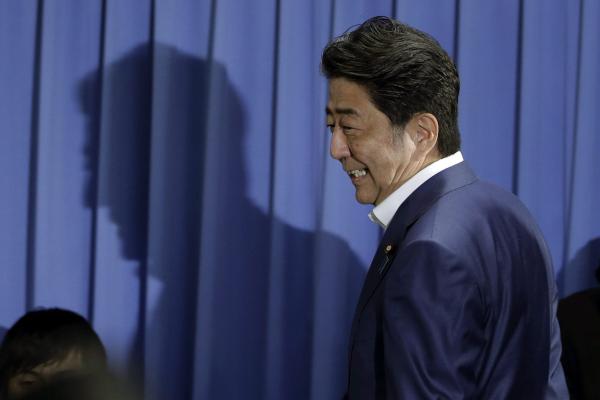Japanese Prime Minister Shinzo Abe and his ruling coalition had a massive win on Sunday in an election for parliament’s upper house, despite concerns about his economic policies and plans to revise the nation’s post-war pacifist constitution for the first time.
Some Media exit polls showed that Abe’s coalition, like-minded parties and independents had won the two-thirds “super majority” needed to try to revise the constitution’s restraints on the military, a step that could strain ties with China, where memories of Japan’s past militarism run deep.
Abe’s Liberal Democratic Party (LDP) won a simple majority for the first time since 1989, according to the voter surveys, a victory that will bolster the premier’s grip over the conservative party that he led back to power in 2012 after three years in opposition.
Nevertheless, the overall victory will still bolster Abe’s grip over the conservative party that he led back to power in 2012 promising to reboot the economy with hyper-easy monetary policy, fiscal spending and reforms.
Any attempt to revise the constitution will still be politically fraught and LDP heavyweights have suggested that amending the pacifist Article 9 would not be the first priority.
Abe told a TV broadcaster it was too early to talk about specific revisions to the constitution and his No.2 in the party said separately that talks with the opposition were needed.
“I have two more years to my term (as LDP president) and this is a goal of the LDP, so I want to address it calmly,” Abe said.
In Japan, some financial market players fear trying to amend the constitution could divert Abe’s energy away from reviving the stuttering economy.
“The key question will be whether he can carry out (economic) structural reforms,” said Nobuhiko Kuramochi, chief strategist at Mizuho Securities. “If Abe fails to do so despite the political freedom he has gained, that will be negative for foreign investors’ appetite for Japanese stocks.”
Some voters who backed Abe’s LDP also said the economy’s health was their biggest concern.
“Especially since I see economic growth as the priority, I have little hope for the opposition parties,” said Yoshihiko Takeda, a 36-year-old IT company employee.
